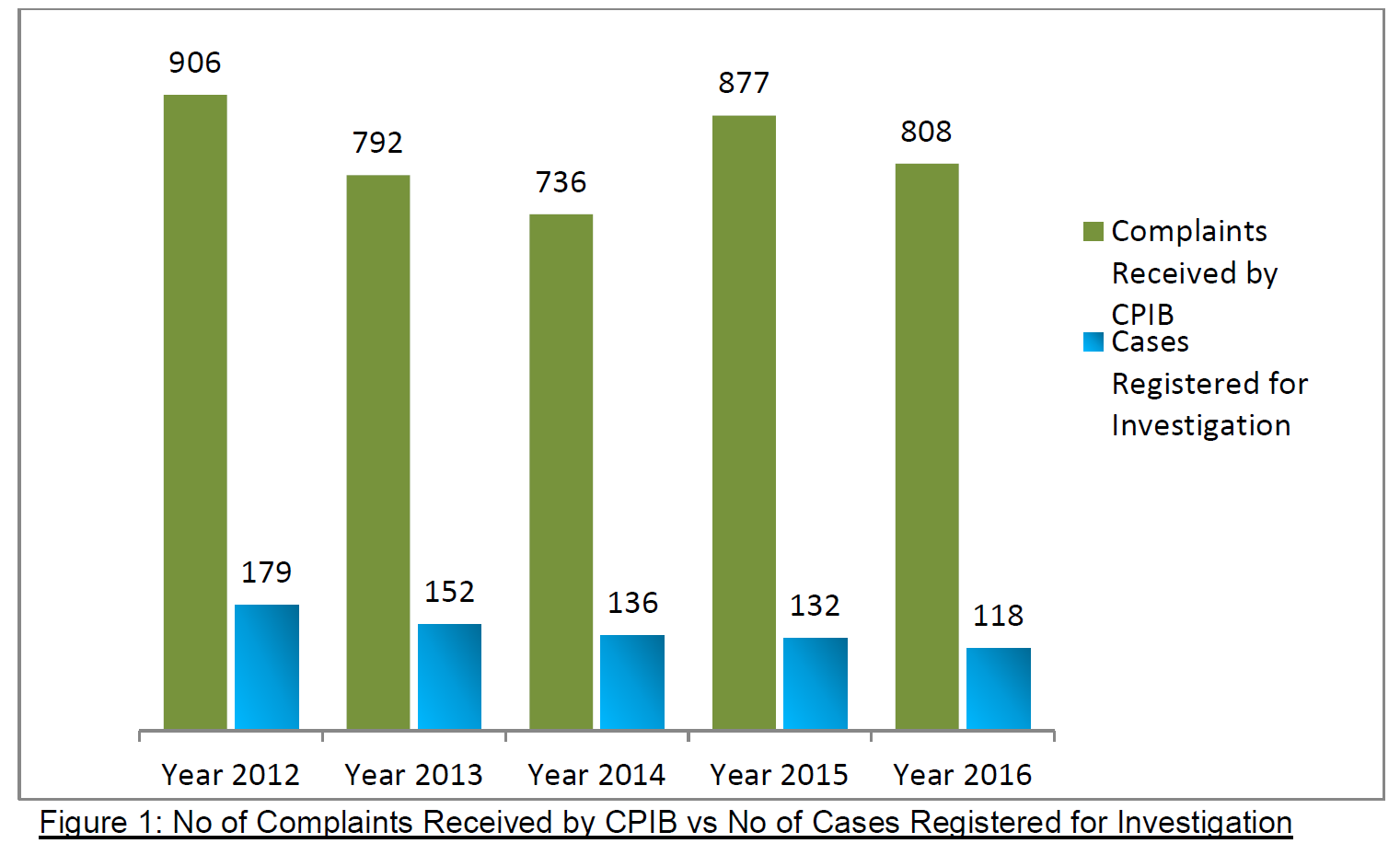SINGAPORE - The Corrupt Practices Investigation Bureau (CPIB) said the number of cases registered for its investigation hit the lowest last year.
CPIB said it had received 808 complaints in 2016, down from 877 in 2015. Of these, 118 cases or 14.6 per cent of the complaints lodged last year were registered for investigation - the lowest in 32 years.
CPIB disclosed the figures on Wednesday (April 12) at the launch, jointly by the agency and Spring Singapore, of a new anti-bribery ISO standard to help local firms expanding overseas.
Private sector cases continued to make up the majority of corruption cases in Singapore at 85 per cent of all cases registered for investigation last year, CPIB added. This was a 4 percentage point decrease from 2015.

Public sector corruption cases remained low last year, accounting for 15 per cent of all cases registered for investigation. This was up from 11 per cent in 2015, but CPIB noted that due to the small numbers, the 4 percentage point increase "is not significant".
Spring and CPIB said that one way to help businesses enhance anti-bribery controls is to have an effective compliance programme such as the new Singapore Standard ISO 37001 (SS ISO 37001). The new Singapore Standard will help firms that are looking to internationalise to manage corruption risk.
"The voluntary standard that is based on internationally recognised good practices provides guidelines to help Singapore companies strengthen their anti-bribery compliance systems and processes and ensure compliance with anti-bribery laws," the two agencies said in a joint statement.
"With the operating environment becoming more complex, and corruption cases more transnational in nature, adopting the new SS ISO 37001 standard will help Singapore companies safeguard against bribery," said Mr Wong Hong Kuan, CPIB director and convenor of a working group under the Singapore Standards Council for anti-bribery management systems.
The Singapore standard is a national adoption of ISO 37001 that was developed by an International Organization for Standardization committee comprising representatives from 61 countries including Singapore.
Singapore was represented by the working group on anti-bribery management systems led by the CPIB and comprised 11 representatives from business, trade associations and chambers, academia, and government bodies.
By adopting the standard, Spring said firms will gain an "additional stamp of confidence" in their systems and processes to help them grow overseas.
The standard includes a series of measures that organisations must implement which represent globally recognised anti-bribery good practices.
It specifies requirements including top management commitment, anti-bribery policy and training to staff, project risk assessments, financial and contractual controls, and oversight by a compliance manager, among others.
"Spring will be working with public and private stakeholders to provide assistance in terms of training, consultancy, certification and funding," said Ms Choy Sauw Kook, assistant chief executive for quality and excellence at Spring Singapore.
Spring and the Singapore Accreditation Council will be working with relevant stakeholders to develop an accreditation scheme for certification bodies providing SS ISO 37001 certification services by the end of this year.


